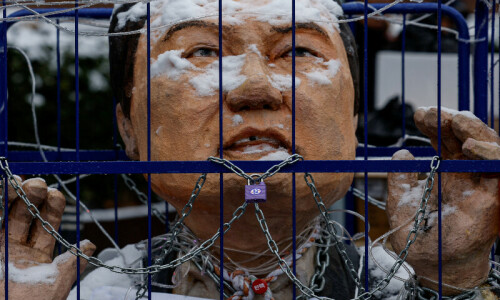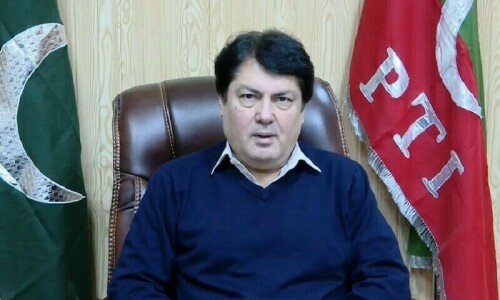BERLIN: The leader of Chancellor Angela Merkel’s junior coalition partner, the SPD, announced her resignation on Sunday from her party’s top jobs, raising the possibility that Germany’s embattled government could collapse.
Andrea Nahles, who heads the centre-left Social Democratic Party (SPD), has come under intense pressure after voters handed the party its worst European election results a week ago.
The SPD had initially planned to re-examine its partnership with Merkel’s centre-right CDU-CSU alliance in the autumn, half-way through their four-year deal.
But ahead of a planned leadership vote on Tuesday, Nahles said she would give up her jobs as both party chief and head of its parliamentary group.
“The discussions in the parliamentary group and the broad feedback from the party showed me that the support necessary for the exercise of my offices is no longer there,” said Nahles, 48, in a statement.
Harald Christ, deputy chief of the SPD’s economy forum, said Nahles’s decision had put the future of the coalition in serious doubt. “To all those who are happy today: it is a great loss for German politics. Nahles stands for the existence of the GroKo — whose stability is now in question,” he told Bild daily, using the German short-form for grand coalition.
Anxiously watching as the SPD tumbled into disarray, the CDU urged its junior partner to stabilise the coalition.
Annegret Kramp-Karrenbauer, who is party chief of Merkel’s CDU, said she expected the SPD to fill its leadership post “quickly, so that it would not hurt the coalition’s ability to take action.
“For the CDU, this is not the time for reflection on party tactics. We stand by the grand coalition,” said the CDU chief, whose message is expected to be echoed by Merkel when she addresses the press later Sunday.
Nahles’ bombshell came as more bad news for Merkel’s CDU, which was itself scrambling to retain voters, after it too scored a record low in the European elections.
Kramp-Karrenbauer has struggled to put down an online youth revolt against the party, raising questions as to whether she is the best person for Germany’s top job when Merkel leaves the political stage in 2021. But the far-right AfD said the government was already disintegrating.
“Not only is the SPD dissolving, the GroKo too is walking the political stage only as one of the undead,” wrote the co-leader of the AfD’s group in parliament, Alice Weidel, on Twitter. Some newspapers reached similar conclusions.
Bild daily noted that “the SPD is bleeding to death. The GroKo too”. And the Sueddeutsche daily predicted that “the coalition has come to an end.
“The Social Democrats have just defeated the woman who with great effort brought the alliance together. What’s the point now then of continuing to torment themselves with this?”
The alliance between Merkel’s Christian Democrats and the SPD was fragile from the start. Stung by a election beating in 2017, the SPD had initially sought to go into opposition.
But it was reluctantly coaxed into renewing a partnership with Merkel, even as many within the party remained wary of continuing to govern in her shadow.
Published in Dawn, June 3rd, 2019













































